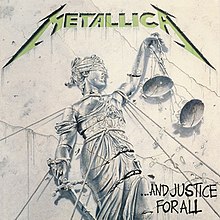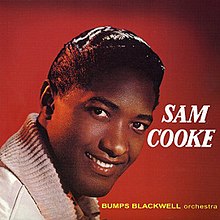GRAMMY WTF? 1989 Best Hard Rock / Metal Performance. More: Sunday
The Grammy Awards are one of music’s most prestigious trophies. Since the inaugural ceremony in 1959, winners have spanned a vast array of musical styles and winners as diverse as Frank Sinatra, Aretha Franklin, Stevie Wonder, Eminem and Lizzo. There have, however, been some instances where one can’t comprehend the outcomes and omissions. Caffè Lattè looks back on some of the most baffling moments and unsuccessful -yet influential- acts…
GRAMMY WTF?
BEST HARD ROCK / METAL PERFORMANCE VOCAL OR INSTRUMENTAL 1989
WINNER:

NOMINATED BETTER CHOICE:

One choice that drew immense criticism was the awarding of a hard rock / metal trophy to Jethro Tull. Prog-rock and art-rock are more apt categories than the one they were nominated in. What made the win even more astounding was that Jethro Tull beat Metallica that year!
Fellow nominees Metallica were nominated for one of the definitive hard rock / metal recordings: ‘…And Justice For All’. This album was a key progression in the band’s sound and production and has continued to influence others in the two genres. As good a band as Jethro Tull is, Metallica’s album was a no-brainer for the win in this category. It was a bad start to the Academy finally recognizing heavy metal acts.
Almost immediately, those at the ceremony began shaking their heads, literally trying to make sense of what had gone down in front of the cameras. It affected the credibility of the category and this led to a rapid overhaul in time for the next year’s Grammy Awards presentation.
For 1990, that category was separated into two: one for hard rock and another for metal. That year, Metallica was vindicated. The group won the latter award in 1990, 1991, 1992, 1999, 2004 and 2009.
…And justice for all indeed!
NEVER WON A GRAMMY AWARD*:
*(excludes life achievement categories)
SAM COOKE
Many music commentators would declare Sam Cooke as among soul music’s most influential vocalists, if not the most important. The singer started in gospel, as one of The Soul Stirrers, before he switched to the secular and mainstream.
He was one of the first African-Americans to crossover to a white pop audience. Cooke accomplished this with ease, thanks largely due to his vocal skill with songs such as “You Send Me”, “Cupid”, “Nothing Can Change This Love” and “Wonderful World”.
With “Chain Gang” and “A Change Is Gonna Come”, Cooke addressed the mood of his community as civil rights became a volatile issue. The latter soon was adopted as a new anthem for the movement.
Cooke’s voice wooed on tracks that include “I’ll Come Running Back To You”. “Only Sixteen” and “When A Boy Falls In Love”. He could party too, as evident on “Shake”, “Twistin’ The Night Away” and “Everybody Loves to Cha Cha Cha”.
The Grammy voters gave Cooke 6 nominations. Each time, he missed out. Cooke might have continued recording more songs of equal significance had he not been shot dead under suspicious circumstances on December 11, 1964. That the academy could have overlooked such a popular and influential performer and songwriter is another example of the Grammy Awards getting it very wrong.

No comments:
Post a Comment